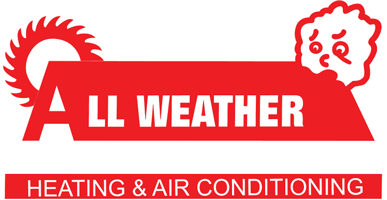
To avoid rising energy costs and work toward a more sustainable life, many homeowners are trying new methods to maintain comfort levels while using less energy. As part of the Inflation Reduction Act, federal tax credits are available for high efficiency HVAC equipment. These credits offer a big chunk of the installation costs, provided that homeowners choose qualifying equipment and submit the right paperwork.
If you’re trying to avoid a long process, we’re offering to help! All Weather Heating & Air Conditioning Inc hopes this guide will provide all the information necessary to take full advantage of HVAC tax credits this year. Here’s how.
How Do These Tax Credits Work?
These valuable tax credits for energy-efficient home improvements are just one portion of the recent Inflation Reduction Act. Energy costs affect everyone, so helping homeowners upgrade to higher efficiency utilities can benefit everyone. The key provision of these credits is to mitigate costs associated with installation and renovation projects. Of particular importance are the Energy Efficiency Home Improvement Credit and the Residential Clean Energy Credit.
But remember, to earn any of the credits, you’ll have to fill out IRS Form 5695. Additionally, this form needs to be submitted during the same tax year any upgrades were installed, not bought.
Maximizing Savings with the Energy Efficiency Home Improvement Credit
Through 2032, the Energy Efficiency Home Improvement Credit provides up to $3,200 annually for energy-efficient home upgrades. This equals 30% of the total project’s cost. It's important to note in order to receive the maximum amount, you’ll have to make several investments. For example, you’ll receive up to $2,000 for a new, high-efficiency heat pump. This can be paired with an additional $1,200 in credits for more projects in the tax year.
While heat pumps are a great use of the program, high-efficiency furnaces, air conditioners, boilers, and other HVAC systems are still eligible for this tax credit. You should confirm the make and model’s energy efficiency rating is high enough for eligibility.
Exploring the Residential Clean Energy Credit
The Residential Clean Energy Credit provides 30% savings on a wide range of residential clean energy efficiency projects. Eligibility is only extended to homeowners looking for new clean energy solutions for their home. While the Home Improvement Credit works primarily with utilities and HVAC systems, this credit is instead designed around renewable energy sources like solar and wind energy.
Some specific items in this tax credit include the requirement that installation must occur between 2022 and 2032. But at the same time, homeowners can keep the excess credit to reduce future taxes. This is a great way to make things a little easier when investing in renewables.
Additional Qualifications for Energy Tax Credits
Because HVAC systems are one of the major reasons for high energy bills, these tax credits offer more access to the most energy-efficient options. But home energy efficiency can be improved in lots of other ways. Apart from the previously listed HVAC upgrades, {you could also choose|other eligible items include|you also have access to:
- Heat pump water heaters
- Electrical panel upgrades
- New electrical wiring
- Insulation, air sealing and ventilation enhancements
- High-efficiency electric stoves, cooktops, ranges or ovens
- Heat pump clothes dryers
- Water boilers
Like the HVAC systems, you’ll need to check that your preferred make and model features the required energy efficiency ratings.
Maximizing Your 2024 HVAC Tax Credits: Top 3 Tips
While any of these upgrades can improve your home’s energy efficiency, a little planning will ensure more long-term benefits. Maximize your HVAC tax credits with these three tips:
- Conduct a home energy audit to identify impactful upgrades. Rely on professional HVAC assessments for crucial advice.
- Enhance your home's envelope by addressing inefficient windows and doors.
- Explore potential rebates from utility companies for clean energy upgrades. Renewable sources like solar, wind, and geothermal contribute to community power grid sustainability.
- Don’t forget financing options from local service companies, which can help reduce costs even more.
All Weather Heating & Air Conditioning Inc Can Help You Secure HVAC Credits for 2024
Partner with local HVAC professionals like All Weather Heating & Air Conditioning Inc for eligible serves like energy assessments or new installation. Our helpful installers will deliver everything you need for a more energy-efficient home.
